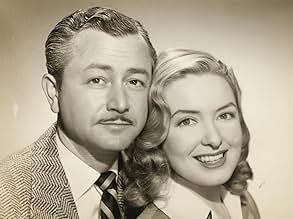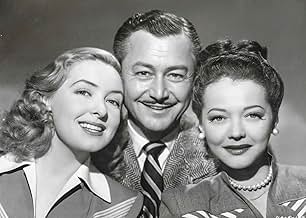Hal Wallis lays on a posh production, complete with tinkling crystal chandeliers, gilded ballrooms and wall-to-wall violin accompaniment, all so that journalist Sylvia Sidney can reproach diplomat Robert Young for his cowardice in not denouncing fascism [while they toy with rekindling their youthful affair]. Lillian Hellman's script boots them all across Europe, from Mussolini's takeover of Rome to the bombing of Madrid to the signing of the Munich Accord . Meanwhile, Young's wife [Ann Richards] entertains assorted brownshirts and blackshirts because she's a shallow socialite, while their war-wounded son [Douglas Dick, in Montgomery Clift's star-making Broadway role] stays home to sort out his own objections to the family's appeasement policies.
For mainstream Hollywood, this idea-driven story was an honorable attempt to dramatize issues of conscience and responsibility [though criticism of official silence about budding fascist regimes was surely a bit late by 1946]. However, everyone gets to face a moral crisis here, from crusty Grandpa [Dudley Digges] down to a waiter who pauses to deliver a lecture on Woodrow Wilson, and marrying its serious ideas with an uncompelling love triangle seems contrived.
Hellman writes literate but non-stop dialogue, making everyone mouth the same high-minded generalities ["Whenever people talk about not taking sides, they've already taken one," or "People who know what they want don't wait to get it."] After an hour of politely listening to such unlikely repartee, we gradually grow weary, then dismayed, and finally exasperated. Was Hellman paid by the word, like Dickens?
This torrent of talk leaves no room for the film to breathe, so all of William Dieterle's fluent staging produces only claustrophobia. Also, while Lee Garmes' exquisite lighting and Hans Dreier's cavernous interiors mark a high point in Hollywood gloss, the decor is so fancy that we in the audience can only goggle in awe at the dilemmas of these privileged power-brokers, surely not what Hellman intended. Still, as James Agee noted, "People as highly civilized as these are seldom seen in the movies, and are still more seldom played with understanding." True, but one is tempted to throw buckets of ice water on the cast to stop their debating.


































